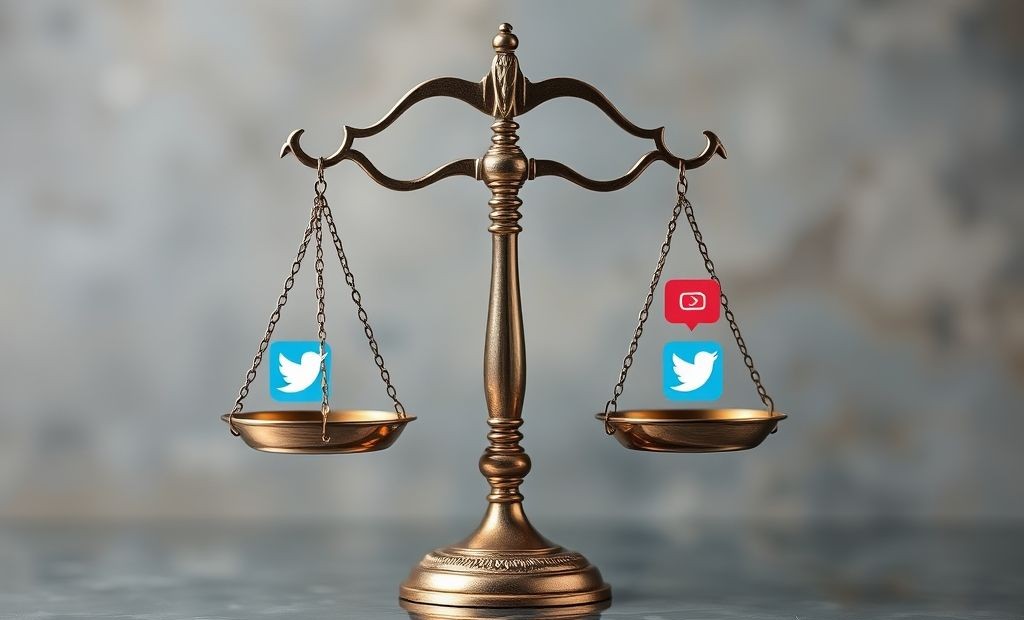Revenge Porn Law: Free Speech Concerns Arise

New Anti-Revenge Porn Law Sparks Free Speech Debate The recently enacted Take It Down Act has ignited a significant debate, particularly among free speech advocates...
⏱️ Estimated reading time: 3 min
Latest News
New Anti-Revenge Porn Law Sparks Free Speech Debate
The recently enacted Take It Down Act has ignited a significant debate, particularly among free speech advocates concerned about its potential implications. While the law aims to protect individuals from the harm of non-consensual image sharing, critics argue that its broad scope could inadvertently impact freedom of expression.BestofAI
Overview of the Take It Down Act
Signed into law by President Donald Trump on May 20, 2025, the Take It Down Act criminalizes the distribution of non-consensual intimate images, including those generated by artificial intelligence (AI). The legislation mandates that online platforms remove such content within 48 hours of a victim’s request, with enforcement overseen by the Federal Trade Commission (FTC) .Business Insider
Free Speech Concerns
Despite its protective intentions, the law has raised alarms among digital rights groups. Organizations like the Electronic Frontier Foundation warn that the Act’s vague language and rapid takedown requirements could lead to overreach and censorship of legitimate content, including legal pornography, LGBTQmaterial, and political criticism . The concern is that the law’s enforcement mechanisms might infringe upon First Amendment rights by suppressing lawful expression.BestofAI

Implementation Challenges
The Act’s requirement for platforms to act within a 48-hour window poses logistical challenges, especially for smaller websites lacking robust content moderation systems. Additionally, the law’s standards for verifying claims are considered lax, potentially leading to misuse and unwarranted content removal .New York Post
Balancing Protection and Expression
Proponents argue that the law is a necessary step to protect individuals from digital exploitation, particularly as AI technology makes it easier to create realistic deepfakes. However, critics emphasize the need for clear guidelines to prevent the suppression of lawful speech. The ongoing debate underscores the challenge of crafting legislation that effectively addresses digital harms without encroaching on fundamental rights.The Free Speech Center
Understanding the Law’s Intent
The primary aim of the anti-revenge porn law is to criminalize the act of sharing intimate images without the explicit consent of the person depicted. Proponents argue that such laws are crucial in addressing a form of online abuse that can have devastating emotional and psychological consequences for victims. They emphasize that the law seeks to balance the need to protect privacy with the constitutional right to free speech.

Free Speech Concerns Articulated
However, free speech experts raise concerns that the law’s language may be overly broad, potentially capturing a wide range of expressive activities beyond the intended scope of revenge porn. Some worry that the law could inadvertently criminalize artistic expression, journalistic reporting, or even political speech if it involves the sharing of images deemed intimate or private.
Key concerns include:
- Vagueness: Critics argue that the definition of “intimate” images is often vague, leaving room for subjective interpretation and potential abuse.
- Chilling Effect: The fear of prosecution could deter individuals from engaging in legitimate forms of expression, leading to self-censorship.
- Enforcement Challenges: Applying the law in complex online environments presents practical difficulties, raising questions about due process and fairness.
Balancing Privacy and Free Speech
The challenge lies in striking a balance between protecting individual privacy and safeguarding freedom of expression. To address these concerns, some experts suggest that the law should be narrowly tailored to target only the most egregious forms of non-consensual image sharing, while providing clear and objective criteria for determining what constitutes an “intimate” image. This ensures the new anti-revenge porn law protects victims without infringing on free speech.
Related Posts
Bluesky Enhances Moderation for Transparency, Better Tracking
Bluesky Updates Moderation Policies for Enhanced Transparency Bluesky, the decentralized social network aiming to compete...
December 11, 2025

Google Maps: Gemini Tips, EV Charger Predictions & More!
Google Maps Gets Smarter: Gemini Tips & EV Updates Google Maps is enhancing user experience...
December 9, 2025

US, UK, Australia Sanction Russian Web Host
Crackdown on Russian ‘Bulletproof’ Web Host The United States, United Kingdom, and Australia have jointly...
December 6, 2025











Leave a Reply